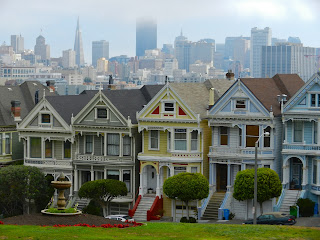 |
| A gender quota requires 1 out of 5 participants are women. |
Davos is all about networking. But this is high speed, broadband networking. Tucked away (probably because security is much easier here... anyone not connected with the Forum is easily noticed) in this small Swiss mountain resort, the movers and shakers sort each other out. So, if you had had the idea of such a conference, what would you charge the richest people in the world?
Now, I'm digging my information from the Herald Tribune. You have to be a member of the club to get invited to the Forum. Yearly membership for a single person is around 52.000 US$. Then you have to pay the entrance fee of 18.000 Swiss francs... a total of about 71.000 US$. That's your ticket to come and listen to the powerful of this world. But as one participant told me, "At that price, you're a loser." To get into the more exclusive conference rooms, access to influential people and rooms of your own, you can pay upwards to 600.000 US$!
 |
Promoting instead of policing, Canadian Mounties
woo investors. |
We, the press, don't pay that and work 15 hours a day for our honest salaries. But, we do get to meet and hobnob with the best of them. Last night, Friday, was a night of parties. Being here, we had to see what that was all about. After a nice Indian cocktail party with delicious and spicy finger food, we had drinks with CEOs the world over. The big event of the evening was the Google party. They had a robot which could solve the Rubrik's cube in 27 seconds, men completely wrapped up in bright orange or green or red sort of tights from head to toe, carrying illuminated, electrical plants. As we walked in (having sort of crashed the party because not invited) we crossed John Kerry, US Senator, as he was leaving. There were many other prominent people inside letting go, dancing to the DJ's music. A great evening, ending, for us at least, around three in the morning.

Back up this morning, albeit not so early, we are doing a last stand-up and packing up. At right is Isabelle Kumar, the other half of our gender quota, telling it like it is in Davos.
Next stop Lyon and then Astana, Kazakhstan on Sunday!
















































